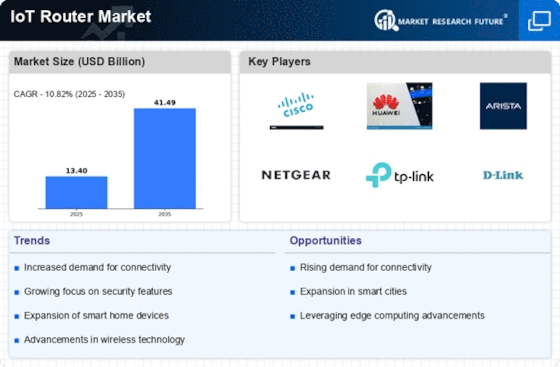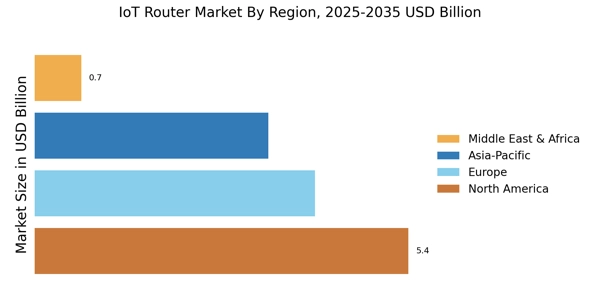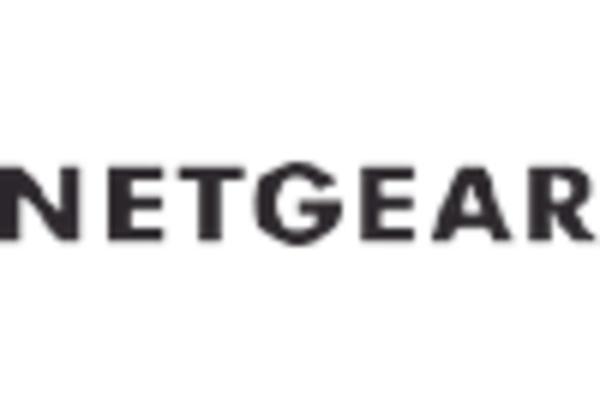Growing Focus on Data Security
The growing focus on data security is a crucial driver for the IoT Router Market. With the rise in cyber threats and data breaches, organizations are increasingly prioritizing secure communication channels for their IoT devices. IoT routers equipped with advanced security features, such as encryption and intrusion detection systems, are becoming essential for protecting sensitive data. Recent studies indicate that The IoT Router is expected to reach over 300 billion by 2024, highlighting the importance of security in the IoT landscape. As businesses recognize the need for secure IoT solutions, the demand for routers that can provide robust security measures is likely to surge, thereby influencing market dynamics.
Rising Demand for Smart Devices
The increasing proliferation of smart devices is a primary driver for the IoT Router Market. As consumers and businesses adopt smart home technologies, wearables, and industrial IoT applications, the need for robust connectivity solutions intensifies. According to recent data, the number of connected devices is projected to reach over 30 billion by 2030, necessitating advanced routing solutions to manage this influx. IoT routers are essential for ensuring seamless communication between devices, thereby enhancing user experience and operational efficiency. This trend indicates a growing market for IoT routers, as they play a crucial role in facilitating the interconnectivity of diverse devices, which is vital for the functionality of smart ecosystems.
Advancements in Network Technologies
Advancements in network technologies, particularly the rollout of 5G, are poised to transform the IoT Router Market. The introduction of 5G networks offers significantly higher speeds and lower latency, which are critical for the performance of IoT applications. This technological evolution is expected to facilitate the deployment of more sophisticated IoT solutions, including smart cities and autonomous vehicles. As 5G becomes more prevalent, the demand for IoT routers that can support these high-speed connections will likely increase. Market analysts suggest that the integration of 5G capabilities into IoT routers could lead to a substantial increase in market size, as businesses seek to leverage the benefits of enhanced connectivity.
Expansion of Industrial IoT Applications
The expansion of industrial IoT applications significantly influences the IoT Router Market. Industries such as manufacturing, logistics, and agriculture are increasingly leveraging IoT technologies to optimize operations and improve productivity. For instance, the industrial IoT market is expected to grow at a compound annual growth rate of over 25% in the coming years. This growth drives the demand for specialized IoT routers that can handle the unique requirements of industrial environments, such as real-time data processing and enhanced security features. As industries continue to adopt IoT solutions, the need for reliable and efficient routing technologies becomes paramount, thereby propelling the IoT router market forward.
Increased Investment in Smart Infrastructure
Increased investment in smart infrastructure is driving growth in the IoT Router Market. Governments and private sectors are allocating substantial resources to develop smart cities, which rely heavily on IoT technologies for efficient management of urban services. This investment trend is expected to create a significant demand for IoT routers that can support the vast network of connected devices required for smart infrastructure. For example, initiatives aimed at enhancing public transportation, energy management, and waste management systems are likely to require advanced routing solutions. As these projects gain momentum, the IoT router market is anticipated to experience considerable growth, reflecting the broader trend towards smart urban development.
















